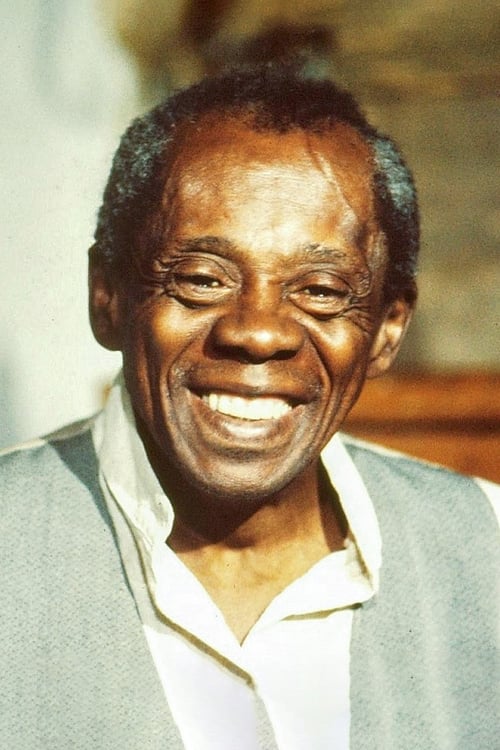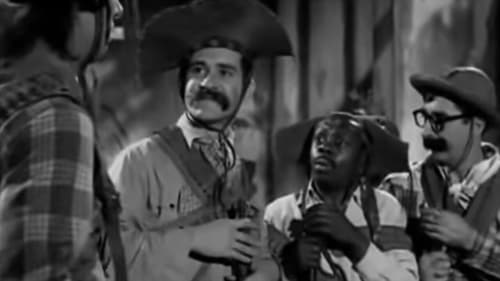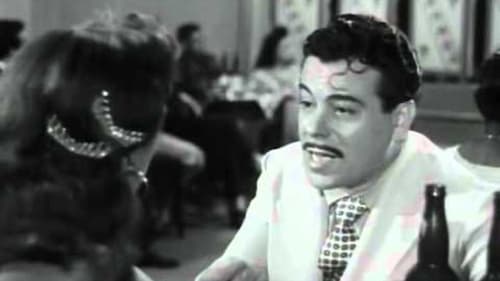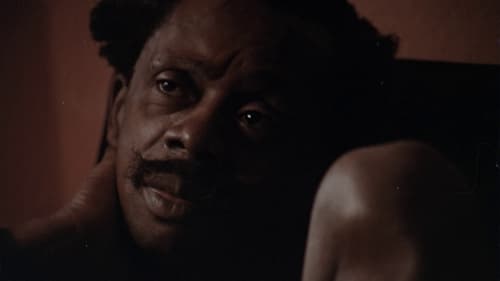
Ele Mesmo (Imagem de Arquivo)

Himself (Archive Footage)
The raft man Manuel Jacaré was swallowed by the sea when Orson Welles was filming It's All True in 1942. The fact evokes memories of the dictatorship of the Estado Novo, of World War II, of Ceará fishermen's struggle for labor rights and housing in their traditional space - target of real estate speculation.

Archive footage
Searching for Makunaima is a cultural and historical account of the most Brazilian character there is in fiction. The film begins with Makunaima, one of the founding myths of the native people from the border between Brazil-Venezuela-Guiana, first captured in the writings of the German ethnographer Koch-Grünberg at the beginning of the 1910s. With interviews in Portuguese, German, Spanish, and in the indigenous languages Macuxi and Taurepang, Searching for Macunaima reclaims this amazing character who represents Brazil in many ways (from literature to cinema to theatre) and remains relevant to date.

(imagens de arquivo)
The documentary O Samba é Primo do Jazz will show the musical trajectory of Alcione Dias Nazareth, the great Brazilian interpreter, from her musical references, her insertion in the world of music and her relationship with family and friends. The biopic brings us closer to a relaxed, fun and matriarchal Alcione with her life and artistic work.

What does Brazilian cinema tell us? What does Brazilian cinema tell us about black actresses and actors? ‘Pressed, Ripped Apart’ makes use of archival sources to retrieve the trajectory of black actresses and actors who, between absences and delimited presences, between the fallacy of a racial democracy – based on the harmony among Brazil’s diverse identities – and erasure of identity, strain the history of Brazilian audiovisual and above all, our own history.

Self
The life of a famous Brazilian film and television actor, including testimonials from people who knew him and worked with him, as well as excerpts from films and videos in which he acted.

Lepto

Self (archive footage)
A film essay about Brazil discovered through Orson Welles' eyes during the shooting of It's All True.

Self
"Portraits and excerpts from Brazilian films from all times. Actors, directors and images that affirm cinema."

Self

Self
A documentary about Orson Welles's unfinished three-part film about South America.

Self

Orson Welles acted in Brazilian culture and music by deeply researching Brazil's historical geology, consciously completing a legendary cultural mission. Although being turned down by Hollywood producers, he developed a triumphantly accomplished mission in the language domain - three friends of Welles' testified his love for cinema, his passion for Brazilian music and people and his obstinate endurance against formidable pressures coming from inside and outside Hollywood regarding his unfinished "It's All True".

An overlook at the southern Rio de Janeiro neighborhoods, from the perspective of one of its most well-known places: Jardim de Alah, a group of squares on the middle of neighborhoods Ipanema and Leblon. There, people of different social classes interact together - workers who live in the Cruzada de São Sebastião building and the local bourgeois class who live in fancy condos. There, the rich and the poor unite in the same spirit.

Himself
In 1988, the centenary of abolition of slavery in Brazil, Zózimo Bulbul made this powerful historical analysis of racial issues in his country. This documentary provides an in-depth look through extensive archival researching and interviews of key figures who were involved in preserving black culture. Aside from historical testimony, this epic documentary also points to the current relevance of facing the racism that still confronts the black population in Brazil.

Biography of one of the legendary names in the Samba genre of Brazilian music. Although he could hardly dance or play an instrument, he became one of the main composers of Portela, an important Samba "school" in Rio de Janeiro.
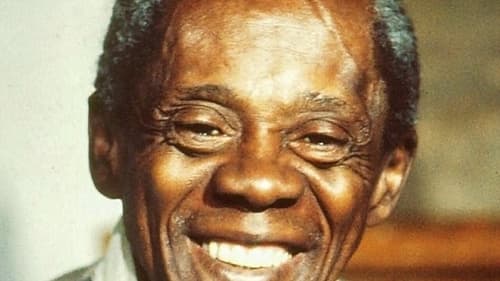
Jubiabá
Jubiabá is a French-Brazilian film based on the homonymous novel by Jorge Amado. The film tells the story of the interracial love between the daughter of a rich Commander and Antonio Balduíno, a rascal, fighter and famous lover from Salvador.

A rock singer goes to Brazil to shoot a video, but winds up getting kidnapped and enduring a number of seemingly bizarre and hilarious events.

Brazilian multi-instrumentalist, composer and maestro, Paulo Moura, talks about his influences and show his passion for the samba.

A brief history of origins of brazilian carioca samba and its types.
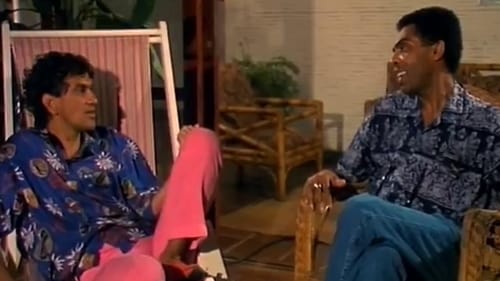
Self
Gilberto Gil talks with friends and share his thoughts, influences and reveal his impact on brazilian music and vision of the black people.

Himself
Orson Welles goes to Brazil to shoot his documentary It's All True.

Rich girl travels with her fiancé (a cousin) to the family farm, where they're going to marry. But finds another cousin in love with her who does everything to hamper the wedding.

Babá
Quilombo dos Palmares was a real-life democratic society, created in Brazil in the 17th century. This incredibly elaborate (and surprisingly little-known) film traces the origins of Quilombo, which began as a community of freed slaves. The colony becomes a safe harbor for other outcasts of the world, including Indians and Jews. Ganga Zumba (Toni Tornado) becomes president of Quilombo, the first freely elected leader in the Western Hemisphere. Naturally, the ruling Portuguese want to subjugate Zumba and his followers, but the Quilombians are ready for their would-be oppressors. The end of this Brave New World is not pleasant, but the followers of Zumba and his ideals take to the hills, where they honor his memory to this day. Writer/director Carlos Diegues takes every available opportunity to compare the rise and fall of Quilombo with the state of affairs in modern-day Brazil.

Seu Pedro
Account an important part of the history of Brazil, through its main character, Anayde Beiriz a poet, journalist and revolutionary and libertarian teacher of the early twentieth century, known for its sexual liberalism, which shocked the pre-Revolution in the state of Paraíba during 1930. His love for João Dantas eventually forge João Pessoa's death, at that time, governor of of Paraíba. These events served as a trigger for the a revolution.

Narrador
"(...) the influence that carnival has on the daily life of the hill, following the manufacture of the carnivals of 1981 and 1982, interviewing several residents who tell the story of more than half a century of the favela's existence and emphasizing its community importance and cultural, to the sound of the most beautiful sambas composed on Mangueira. " (FGR / 11)

Station Master
Fitzcarraldo is a dreamer who plans to build an opera house in Iquitos, in the Peruvian Amazon, so, in order to finance his project, he embarks on an epic adventure to collect rubber, a very profitable product, in a remote and unexplored region of the rainforest.

Príncipe Tourvalou de Blesi
Fantasy comedy about Brazilian writer Oswald de Andrade, one of the most important icons of Modernism in Brazil. In the film, Oswald is played by two actors: Ítala Nandi, as his feminine anima, and Flávio Galvão, as the masculine half.
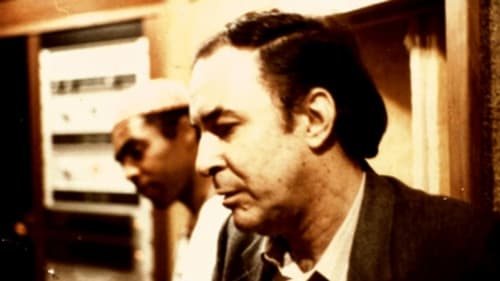
Self (archive footage)
João Gilberto receives Caetano Veloso, Gilberto Gil and Maria Bethânia during the recording of his album Brasil.

Homage to the great Brazilian samba songwriter Noel Rosa (1910-1937).
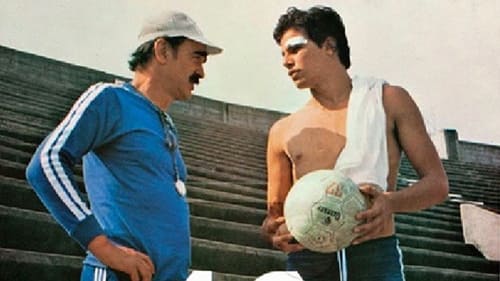
Story of a modest but talented soccer player for an obscure club in a small Brazilian town who comes to São Paulo and reaches stardom.

Sexta-Feira
Robinson Crusoe spoof, with touches of Peter Pan. Shipwreck victim lands on a desert island, finds a friendly native and has to fight pirates whose leader is Captain Hook himself.

Bides

Líbero
When Daniela, a famous actress, decides to return to her hometown to reconnect with a simpler lifestyle, local politicians decide to exploit her influence in order to get ambiguous deeds done.

The son of a millionaire who owns gold mines in Transopia, Africa, Antoine Leblanc, who lives in a mansion in Rio, one day receives a letter from his father asking him for help against the gold smugglers from Transopia to Brazil.

Ruy Zebra
After assaulting a Hollywood film crew, a group of residents of a community in Rio de Janeiro decided to produce a film that would express the reality of Brazil - with the theme of Inconfidência Mineira.

Beicinho
Tonho Tiê really likes living free, playing capoeira and drinking. During Carnival he meets Zulmira, a beautiful woman. On Ash Wednesday, the day of Iansã and Xangô, they pledge love and projects for many children. But time passes and Tonho returns to being the womanizer he had always been. Zulmira, daughter of Iansã, cannot stand Tonho's brazenness, and asks her saint-mother to wash her honor with blood. An Exu is invoked, who in the form of a woman, must make Tonho suffer and pay for his sins. Iaba is her name. Tonho's life starts to get complicated. To meet Iaba's needs, Tonho buys dresses, perfumes and jewelry. But the pomba-gira is not content. She wants to make a worker out of Tonho. No longer supporting Iaba's demands, Tonho decides to look for a terreiro to unload. He receives strength from his orixá, Xangô, and starts a quest to get rid of Iaba's clutches.

Dondinho
History of a famous Brazilian bandit of the early seventies and his fight against a death squad.

Sinhô
Cropped hair, a rosemary branch behind the ear, yellow shirt of shiny satin, he's behind the wheel of his car when passing by a woman who walks by the roadside. Strongly painted lips, printed dress with round skirt and red shoes matching the color of the lipstick, she catches his attention. He gives her a ride, the two of them stare in silence for a few moments. They introduce themselves to one another and between the two establishes an absurd dialogue and full of metaphors. And they are driving around in corners of Rio de Janeiro, to the sound of Noel Rosa and Lamartine Babo. Eva and Antena, she a seer, he, an assassin on the run, initiate an unusual case of love, a marginal love, where boredom often gives way to tragedy, creating the agony of a holiday spent in an abyss.

Omero

Rei do Baralho
In a movie studio, the actors are getting made up and the crew is waiting to begin shooting the film. Grande Otelo, the bungling "king of the deck", and Marta Anderson, the blond and provocative star of the show, recite in the historical scenario of the chanchadas, the abandoned studios of Cinédia. "The photography is splendid, it is a sort of parallel song, of critique, of parody, of understanding of a certain light typical of Brazilian cinema of the times, already re-created, already stylized. And with the older actors, Otelo, Lewgoy and the others, something very important happened in the artistic perception, seeing again, doing again, it was already a concrete metalanguage" (J. Bressane).


Dino and Dalmo are twin brothers. Dino is very shy, and the other, the opposite: a true Don Juan. When Dalmo dies, after being shot by a furious husband, he is received in heaven by a Club of Don Juans. But, in order to be admitted, he must go back to Earth, incarnated in his brother's body, and correct three mistakes he had made in his previous life.

The rare short film presents a curious dialogue between filmmaker Julio Bressane and actor Grande Otelo, where, in a mixture of decorated and improvised text, we discover a little manifesto to the Brazilian experimental cinema. Also called "Belair's last film," Chinese Viola reveals the first partnership between photographer Walter Carvalho and Bressane.

Grande Otelo
A veteran popular singer remembers her early days before fame as a humble woman who faced many obstacles in order to achieve fame, notoriety and make her dreams come true. Her life, the songs, the men she knew and helped her on her ladder to success all have a big influence on her life.

(archive footage)
Documentary on one of Brazil's most controversial personalities: Getúlio Vargas, an ex-president.

Porteiro do teatro
A tireless and incorrigible seducer looks for - and seems to find - the woman of his life.
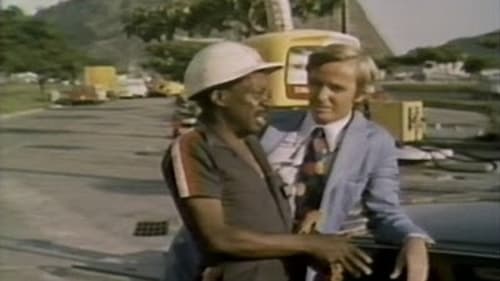
João Otelo dos Anzóis Carapuça
João-Sem-Direção knows Carvalhaes that proposes a blow to him. John does not accept the proposal, but ends up earning a hefty cash in the game.

Tisiu
Bums find $15,000 in trash, but the money belonged to criminals.

Motorista de Taxi

Ele mesmo

A dysfunctional family, composed of a prostitute and two gays, one strong and the other fragile and stupid, lives a routine life in Rio de Janeiro. When the slut threatens the other two to stop supporting them, they decide to find an odalisque as an alternative to keep their easy life.

Tonico
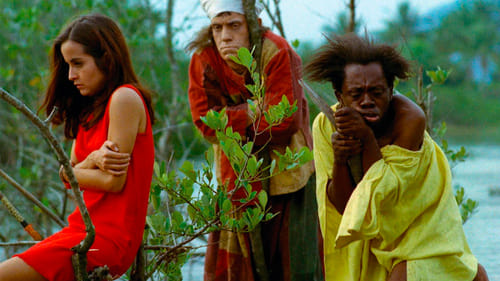
Black Macunaíma / Macunaíma's son
Born a fully grown black man in a village in the Brazilian jungle, Macunaíma later magically transforms into a white man before making an adventure-filled trip to the city of São Paulo. Once there, he becomes something of a dandy, falling in love with Ci, a revolutionary who dies in an accidental bombing. After robbing a ruthless industrialist, Macunaima returns to his village where he finds his newly acquired knowledge and possessions of little use.

Employees on a local supermarket plot an epic heist for robbing the place's vault, but things start to go wrong when they notice a police detective on their heels.

Focinho

A vivacious woman tries to please all of her lovers but finds she can't handle the jealousy that erupts among them.

Eleven small stories, loving chronicles about Rio de Janeiro and its people, written by some of the best Brazilian writers of the time.
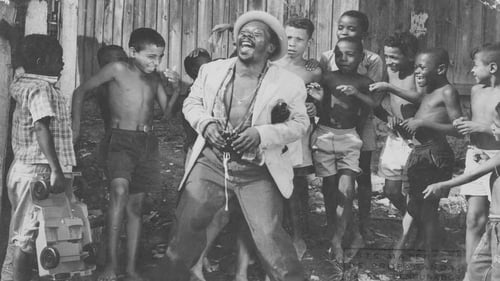
Cachaça
Based on true events in Rio de Janeiro, in 1960, when a gang having the infamous outlaw Tião Medonho as a leader performed a sensational railroad hold-up on a train carrying a small fortune.

Zenóbio
After the success of the first Brazilian space mission, a scientist intends to accomplish an even more audacious feat. His goal is to launch into space the Nationalist rocket II, this time taking two humans to the moon.

During the inauguration of Brasília, Brazil's brand new capital city, singer and ballerina Gilda hides in a working-class night club to escape from an inconvenient millionaire who's trying to date her.

Young man participates in TV contests to help the girl he loves using the money he expects to win.
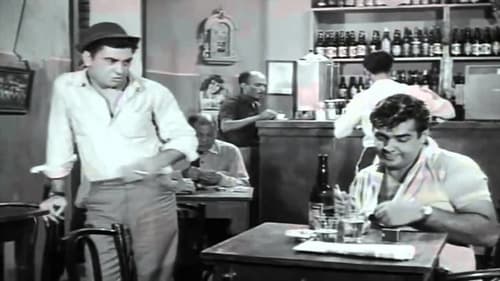
Brancura

Two friends are looking for a quiet place where they can rest awhile. Soon they find the town they'd chosen to go is far from quiet. In fact, it's ruled by outlaws. And one of them is mistaken for the "Avenging Gunman", defender of the law.

While trying to break an "animal game" gambling scheme, Det. Bartolomeu hits his head, and the gamblers convince him that he is one of them. But everytime he hears a whistle, he changes between gambler and policeman.

Two new recruits at a fire station headquarter engage in a competition between two sergeants in personal rivalry

Espírito da Luz Soares
A talented songwriter of sambas is forced to face the social injustices of the city around him.

Benedito
Manicurist finds out she's the daughter of a rich baroness, and inherits her fortune. Now, she'll have to fight her mother's parents, with help from some of her friends.

Faísca
A street vendor and a servant theater, newly unemployed, accidentally swap their briefcases trinkets for one of three bandits who just rob a bank. The chase, which also involves two "rapas" only ends when, aided by a chorus girl, unwittingly participating in a musical number of the show's theater company.

Petrônio drives a bus and his friend Cabeleira is a ticket collector. When Petrônio's sister needs money to do a surgery they get involved with a film production company, where a psychopath is trying to be the protagonist of the movie.

Veludo
Zé da Bomba dreams of being rich, and his neighbour dreams of being an artist and having an affair with him.

Ciscocada
"High Noon" spoof. Kid Bolha and Ciscocada, two clumsy swindlers, arrive at a violent Old West town called Citydown where, by mistake, one of them is appointed Sheriff. They're intent on facing the dreaded Jesse Gordon, a gunman who kills for pleasure.

Tonico and Tião are two vaudevillian artists who travel across Brazil in search of fame and success. A crisis hits the duo when Tião gets tired of being a setup for Tonico's jokes in their numbers and leaves the troupe.

A cleaner accidentely stills a secret formula and get mistaken for the heir prince of an old kingdom.

Miro
Movie producer Cecílio B. de Milho is intent on filming an epic about Helen of Troy, while some of the crew would rather turn it into a musical comedy.

Rapadura/Milk Shake
A scientist swaps the mind of banker and an idiot by accident.

Passarinho
Intent on offering his fiancée a better life, countryman heads for Rio de Janeiro in search of a place in the sun...

Azulão
In Buenos Aires, Frederico hides in a ship going to Rio de Janeiro to travel for free. But Azulão, the cook, finds him and blackmails him into working in the kitchen. Meanwhile, Alberto, the captain, receives a radio message saying that there was a dangerous international spy on board. Things get worse when some passports are mixed-up.

Moleque Miro
Renato and Miro are black brothers raised by a white family in an old mansion in Rio de Janeiro. Renato, a graduated lawyer, has always looked for dignity, winning in life due to his honesty and search for social recognition. His brother, on the contrary, is a rebel small time crook who believes his behavior is the product of the treatment he received while being rased by the whites.

In a workshop there are six workers, the six are brothers. Enter the mother who asks them to rescue the seventh brother, the youngest, Luis. The brothers hesitate because the youngster keeps getting into trouble, but they end up giving in to the request. Gangsters are fighting in a bar and the workers end up getting into the fray.


Empregado do Hotel
A gang, leaded by the unknown and mysterious Anjo, robs a jewelry and schedules a meeting in the Copacabana Palace Hotel, in Copacabana. The identification would be through a cigarette case with an angel, and the password "- Is everything all right?" Meanwhile, the director Ricardo is preparing a show for the carnival in the hotel with Marina, and they love each other. The janitor Serafim receives a letter from his unknown American brother, who will come to Rio to spend the carnival and meet him, and asks Eliana for a chance in the show, since his brother believes he is an artist. When Ricardo finds the cigarette case lost by Anjo in the entrance of the hotel, he is misidentified by the thieves, and this is the beginning of lots of confusion and fun.

Lamparina
A hard working man goes to São Paulo to look for his twin brother unaware that he's famous for his lazyness.

A Brazilian musical comedy

The love misadventures of a teacher, a woman who gives up living in a big city in order to teach country children how to read and write.

Empregado da pensão

Empregado da tendinha

Boneco de Pixe

Gibi
Professor Leônidas Jau is an enemy of football, and in conferences and articles he throws all his hatred against the sport. Friendenreich, his son, however, loves the sport. Leonidas then has a falling out with his son, which may be saved.

Sebastião
